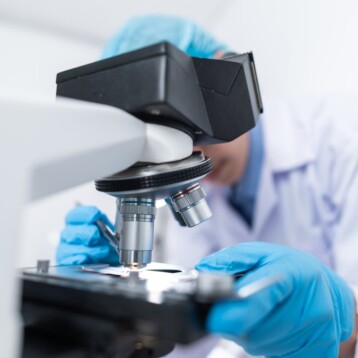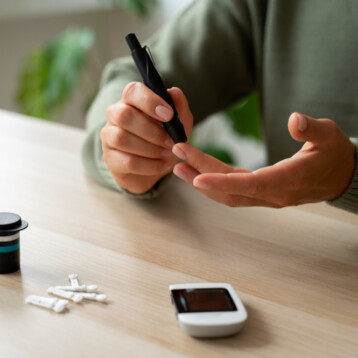Swiss researchers developed a tiny portable personal blood testing laboratory that can be inserted under the skin and can provide immediate analysis of substances in the body and transmit them to a physician wirelessly. The device can also predict heart attacks 3 to 4 hours in advance by detecting specific molecule released by the heart muscle once it starts malfunctioning.
A team of scientists from the École polytechnique fédérale de Lausanne in Switzerland led by Giovanni de Micheli and Sandro Carrara developed a tiny device that can analyze the concentration of different substances within the blood. The tiny device is Implanted just under the skin and can detect up to five proteins and organic acids at the same time and transmit the results wirelessly to the doctor’s computer. This type of blood test will allow a much more personalized health check of than current day blood tests, especially for patients with chronic diseases as well as chemotherapy patients.
–
–
The new miniscule implantable lab is extremely small. Measuring only few cubic millimeters in volume, but includes five sensors, a radio transmitter and a power delivery system which uses a battery patch located Outside the body providing about 1/10 watt of power, directly through the patient’s skin. The implantable lab collects data from the patient and uses Bluetooth to a send information to a mobile phone, which in return send it the patients doctor over the cellular network.
–
–
A prototype of the tiny lab is still in the experimental stages, already demonstrated that it can reliably detect several commonly traced substances using sensors covered with a special enzyme. the implantable lab can already detect lactate, glucose, or ATP in the patient’s body, however according to De Micheli: “enzymes have a limited lifespan, and we have to design them to last as long as possible.” The enzymes currently being tested are good for about a month and a half; that’s already long enough for many applications. “In addition, it’s very easy to remove and replace the implant, since it’s so small.”
–
–
The tiny lab can also predict heart attacks 3-4 hours in before the occur by detecting a specific molecule known as “troponin”, released by the heart muscle once it starts malfunctioning. People who might be at risk for a heart attack could be fitted with the device which will alert them and their doctor and let the prepare in advance (wither by taking a pill or by going to the ER). Another group of patients who might find the device useful are chemotherapy patients who need to be under constant control to set up the optimal dosage of their medication.
–
You can find out more information of the EPFT website.
You can find out more information of the EPFT website.
–
What can you do with the technology – a EPFL video











